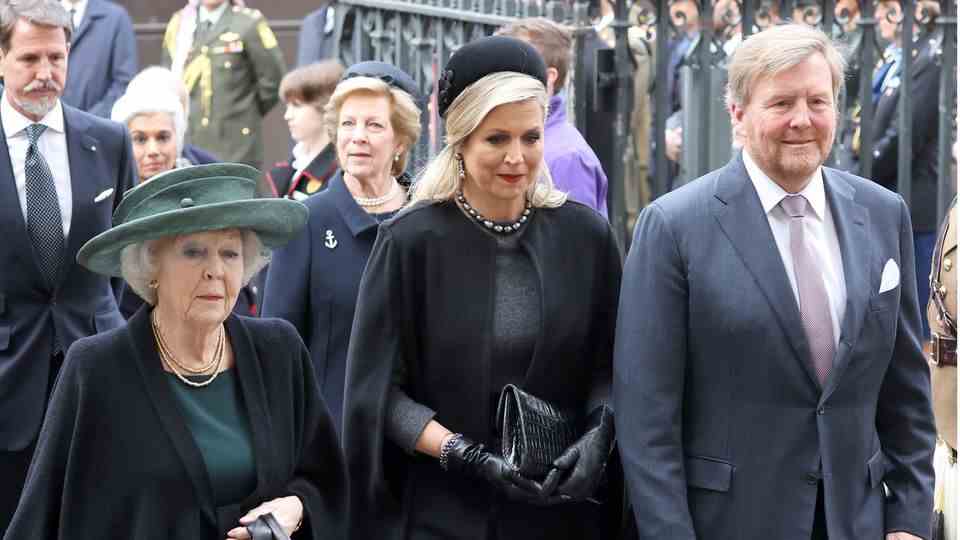Caribbean trip
Prince Edward and Sophie: Royals in the second row – but that could change
Prince Edward, son of Queen Elizabeth II, and his wife Sophie
© i Images / Imago Images
As the Queen’s son and daughter-in-law, Prince Edward and his wife Sophie belong to the inner circle of the royal family. Nevertheless, they have been in the second row for years. That could change.
Not afraid to show feelings, clear words and almost no scandals: the youngest son of Queen Prince Edward (58) and his wife, Countess Sophie (57), are rarely the focus of media attention. But when, as at the funeral for the Queen’s husband, Prince Philip, who died last year, they often surprise with down-to-earthness. At the time, Sophie had reported with tears in her eyes in front of the camera how Philip had died “very gently”, “as if someone had taken him by the hand”.
This weekend, the couple are heading to the Caribbean on behalf of the Queen. Antigua and Barbuda and St.Vincent and the Grenadines are among the stops on their tour, which is part of the official Jubilee Tours. On the occasion of the 70 years that the Queen is on the throne, the monarchy also wants to show its presence from afar.
Prince Edward and Sophie have busy schedules
Since the Queen gave up foreign travel a few years ago, she is represented by her relatives in the great expanses of the Commonwealth countries. In March, Prince William and his wife Kate were traveling in the Caribbean, heir to the throne Charles and Camilla also fanned out. Now it’s the turn of the youngest Queen’s son – the Earl of Wessex – and his wife Sophie. Sophie comes from a middle-class family but has earned the respect of the royals.
The royal diary of the Wessexes, as the couple is also known in England, is usually full, both abroad and at home. Since Prince Harry and Meghan, but also the scandal son Prince Andrew, no longer take on any public tasks, the other members have to do all the more, including Edward and Sophie, says the monarchy expert Craig Prescott of the German Press Agency. “This is likely to increase, especially since the Queen no longer attends many appointments herself.”
Despite this, the pair rarely make the front pages. Too boring? “As a royal, it’s hard to be too boring,” says the historian. Too few scandals? At least you have to dig quite deep in the royal archives to find any on the Wessexes. The Countess made a fool of herself about 20 years ago when secret recordings of her made public in which she blasphemed Tony Blair, then Prime Minister, and other politicians and royals.
Proven, down-to-earth members of the family
Prince Edward made a faux pas when his production company Ardent Productions released film footage of his nephew Prince William during his university days. “The problem was that Buckingham Palace had an agreement with the media that William’s privacy at uni would be protected,” Prescott said. “It was shocking, to say the least, that his uncle was the one who broke the deal.”
But over the past 20 years, the Wessexes have proven to be tried and true family members, which is exactly what is needed, says the historian, who researches and teaches constitutional issues and the future of the monarchy at Bangor University in Wales.
William and Kate’s tour was controversial
The coming days will show how the couple fares as they represent the British crown in the world. The fact that such a journey has pitfalls was shown most recently on the William and Kate tour. In Jamaica, among other places, there was fierce criticism. Local groups demonstrated loudly, demanding an official apology from the Royal Family for its role in colonialism and the slave trade. Recordings were made that would probably do more harm than good to the British crown.
A visit to Grenada was canceled at short notice for similar reasons. As the British “Telegraph” reported, the government there had warned that the stay of the two royals could be overshadowed by issues such as a departure from the monarchy and demands for reparations for slavery.


